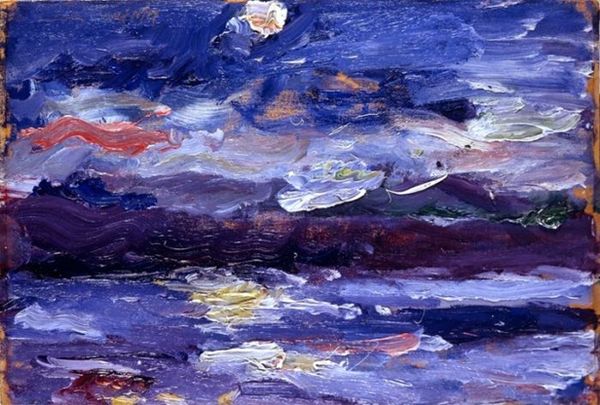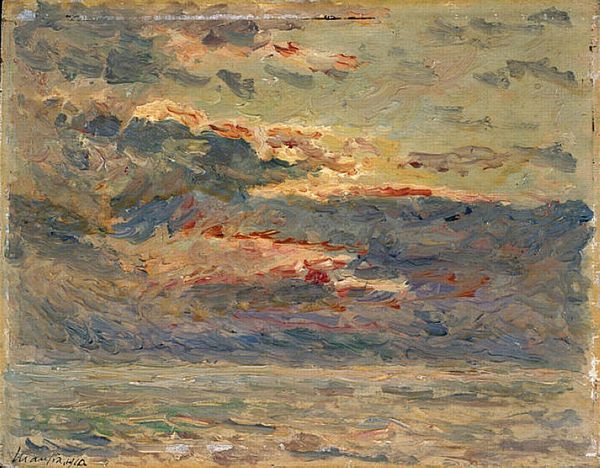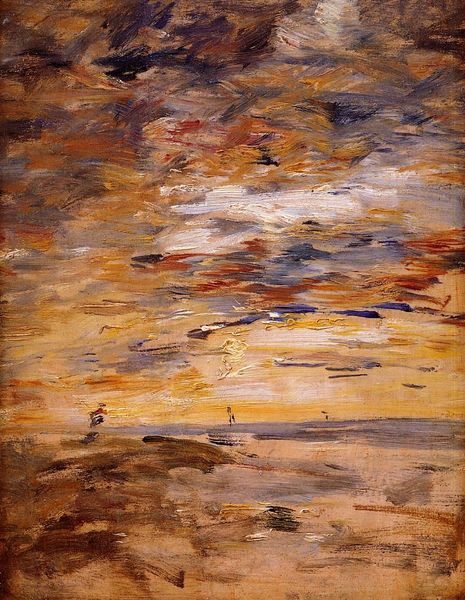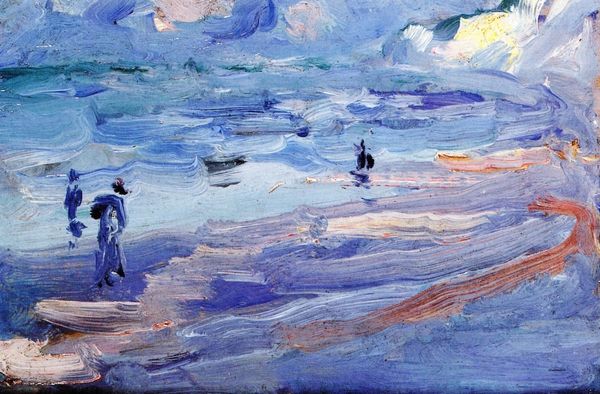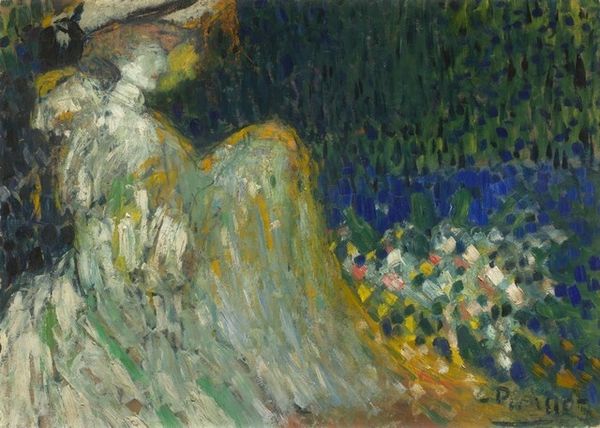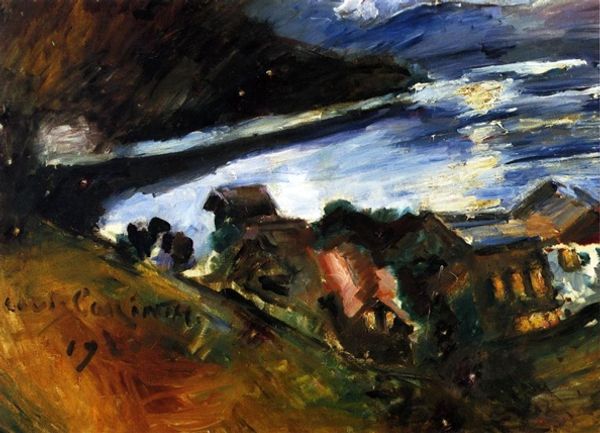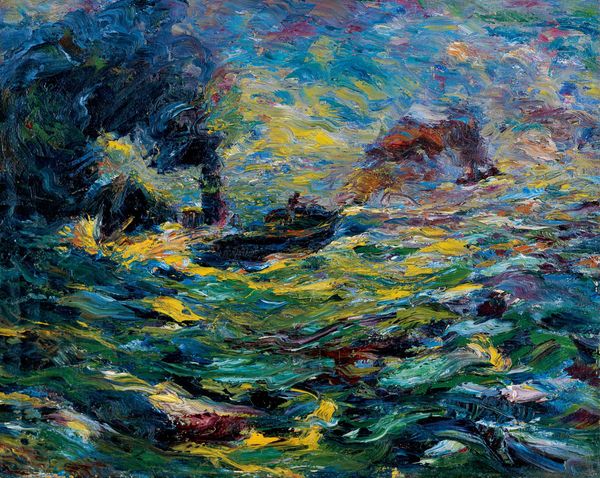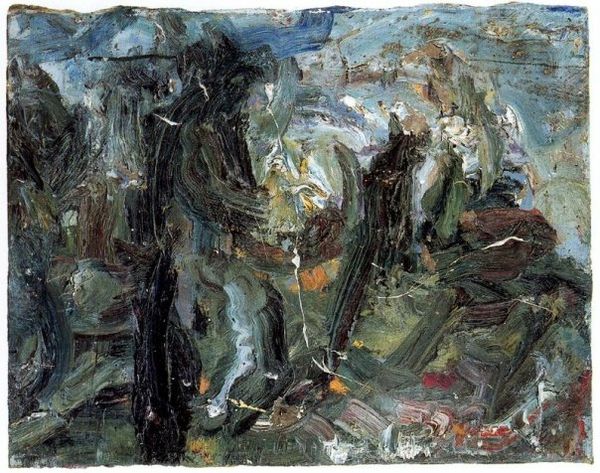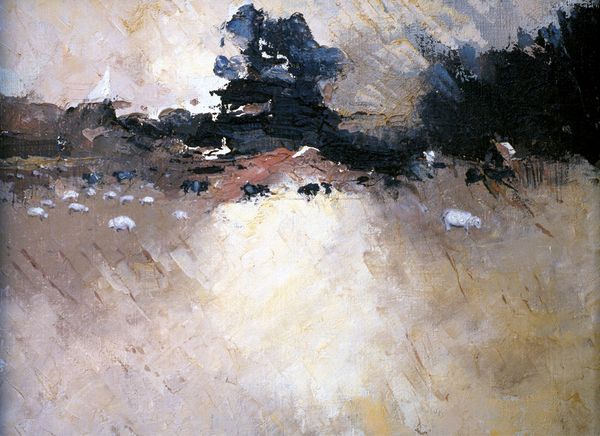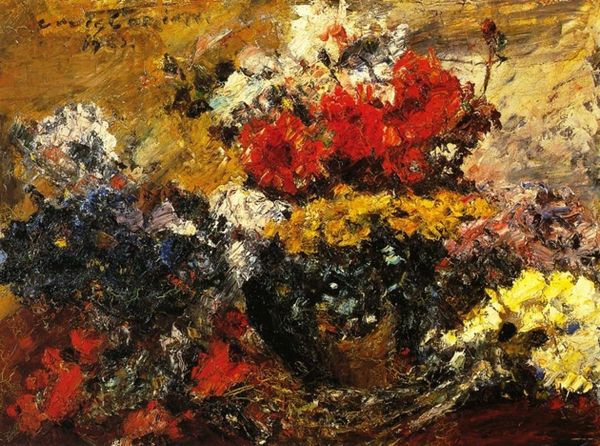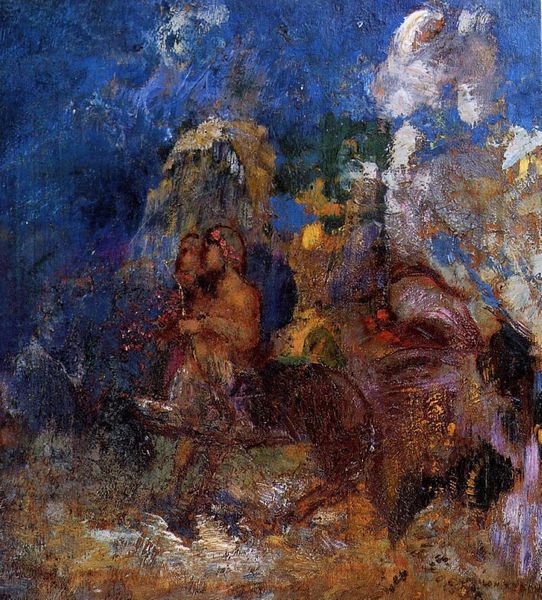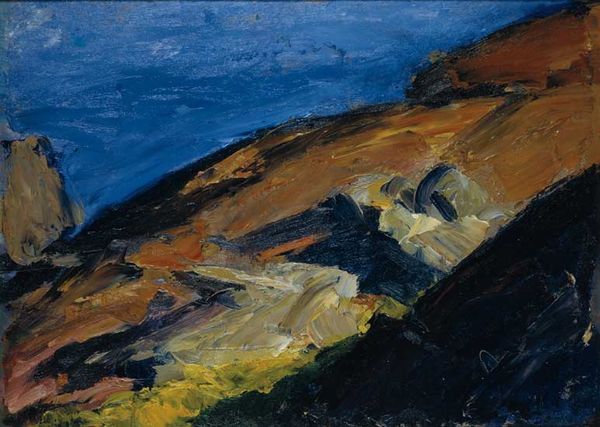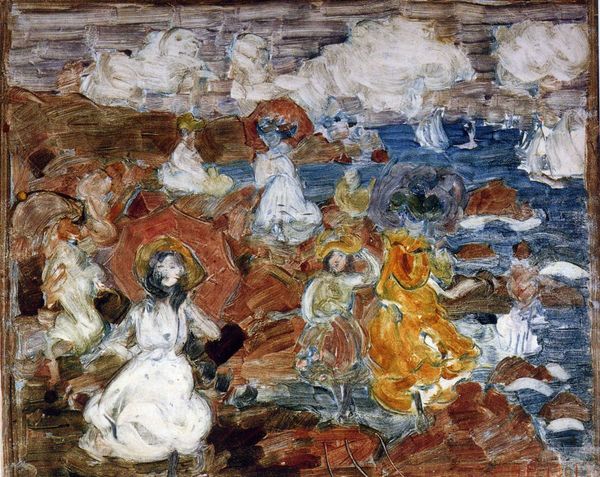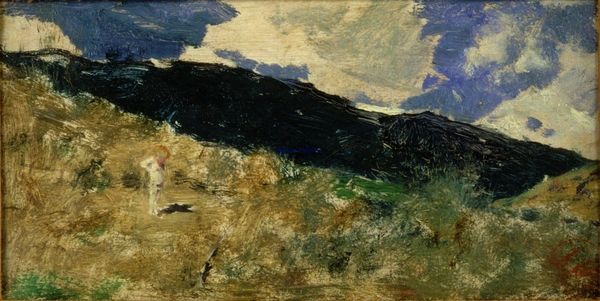
painting, oil-paint
#
painting
#
oil-paint
#
landscape
#
neo expressionist
#
expressionism
#
expressionist
Copyright: Public domain
Curator: This is "The Walchensee-Mountains Wreathed in Cloud," an oil painting created in 1925 by the German artist Lovis Corinth. Editor: My first impression is of turbulence, the almost violent application of paint suggests a storm, not just of weather, but perhaps something emotional as well. Curator: Yes, that fits into the broader context of Expressionism, a style Corinth adopted later in his career. Notice how the landscape, a familiar motif, becomes almost a vehicle for conveying inner turmoil. Editor: The clouds especially feel that way. They dominate the upper portion, thick impasto swirls of white and blue – are they a symbol of overwhelming force, maybe political unrest simmering beneath the surface during the Weimar Republic? Curator: Possibly, and think about how mountains traditionally symbolize endurance, strength. Yet here, they are obscured, weakened by the swirling cloud cover. It subverts that iconic image. Editor: Exactly, it's not a celebration of nature, but almost a struggle against it, or perhaps an acknowledgement of its untamed power. This contrasts starkly with earlier, more idealized landscapes. Curator: Consider Corinth’s biography, too. He suffered a stroke that impacted his physical and artistic abilities. There are interpretations that propose his later style reflects his personal battles. Editor: Which, again, resonates beyond just the artist's life. This was a period of immense societal upheaval, post-war Germany facing economic collapse, political polarization – the “storm” might be reflective of that too. Curator: I think the darkness of the pines offers an anchor, literally and metaphorically. These trees appear to stand firm amidst chaos and provide a focal point, creating a delicate balance. Editor: Despite the tension, the dark pines do offer an interesting symbolic balance; suggesting resilience perhaps. There is definitely a push and pull. I read this as the natural world reflecting the struggles of an entire culture. Curator: Absolutely. It demonstrates how intensely subjective an objective representation of the natural world can be. Editor: This exploration really proves how vital it is to keep an eye on those contextual elements. Thank you. Curator: My pleasure. I find that the consistent dialogue between symbols and experience reveals the richness and depth of art like this.
Comments
No comments
Be the first to comment and join the conversation on the ultimate creative platform.
